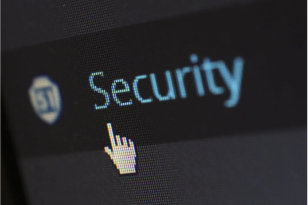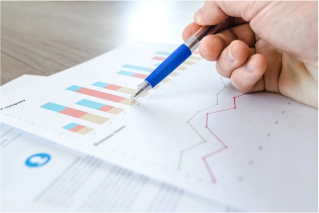Ten Steps To Take If You Lose Money In Forex
- Forex Trading
Introduction
Nowadays, thanks to the Internet, it’s extremely easy for anyone to go online and start trading in forex. Unfortunately, it’s also just as easy to fall victim to any number of forex frauds, from phony brokers to dishonest “expert” advisors; from sham dummy companies to rogue automated trading systems.
The potential for so much online trading fraud shouldn’t necessarily put you off the forex market, but it should at the very least remind you of the need to be careful, cautious, and conscientious.
If you’ve been unlucky enough to have fraudulently lost money in forex, read on for ten tips on how to ensure it doesn’t happen again. Whilst this advice is pertinent to victims of forex frauds, it’s also highly relevant to newcomers and experienced traders alike: with forex, you never stop learning!
1. Don’t Get Scammed Again
Emotions can run high when you realize that you’ve been scammed, but it’s important that you remain cool, calm, and collected. First, immediately ensure that the scammers have no further access to your money: cancel any subscriptions, and block access to your bank account, for example.
Even established and trusted companies have been known to break the rules, so if there’s a grievance procedure in place, use it. Alternatively, if the company is regulated, make a formal complaint to the regulator. For companies that play hardball or that are possibly unregulated, you should consider using a dedicated funds recovery firm (see step 2 below).
Every single person who trades in forex has made mistakes and losses along the way. But clever and successful traders analyze the reasons behind the loss, learn from their mistakes, and use that knowledge to inform their future decisions.
2. Use An Expert To Get Your Money Back
In cases where you’ve been treated unfairly and illegally, you may think that your money is gone forever. However, there are dedicated, professional companies that can help you recover your funds – Payback being one such example. These companies employ seasoned experts from the forex, legal, and banking professions, and you can avail of their long experience to help you get your money back.
In some instances, the threat of legal action is enough to shame scammers into action, but the best fund recovery firms will also start litigation on your behalf where there’s a provable case. Regrettably, in some cases, funds are irrecoverable, but if you’ve been scammed and lost money in forex, this option is definitely worth exploring in more depth.
3. Use An Established Broker Or System
Forex frauds come in many forms, but the majority of scams are perpetrated by unregulated or poorly regulated firms. As they used to say as far back as Roman times, “Caveat emptor” – let the buyer beware. Remember, prevention is better than cure. Before you choose a broker or automated trading system, do your research, ask friends and colleagues for advice, check the company’s credentials for yourself, and most of all, don’t fall for excessive marketing hype.
This step may be a case of being wise after the event, but it’s important that you don’t make the same mistake twice. Choose your broker or automated trading system with care in the first place, and you can avoid most, if not all, forex trading fraud.
4. Detach From Emotional Trading
No-one likes admitting they’re wrong, but if you want to make a success of forex trading, you need to be able to detach and self-reflect on the reasons why you lost out. In some respects, forex trading is like gambling, so make sure you aren’t like that player who gambles more and more to cover their escalating losses.
In extreme cases, you may simply have to accept the reality that forex trading isn’t for you. Alternatively, you can reduce or eliminate the emotional element by working more closely with an experienced broker, or through the use of an automated trading system.
5. Develop Your Knowledge & Experience
It may be a bitter pill to swallow, but perhaps the reason for your losses is that you lack knowledge and experience. There’s an argument that says that you can learn by doing, but if you take that approach with forex, you risk learning some very hard – and very expensive! – lessons!
So do your homework, do your research, and expand your knowledge. There are plenty of free practice accounts out there that let you hone your skills before you move on to the real thing, so take advantage of them. Better still, your greater experience will help you spot fraudsters more easily.

6. Manage Your Risks
The rules for risk management are deceptively simple: the higher the risk, the greater the chance of a bigger return… but the chance of major losses is also higher. That apparent simplicity shouldn’t blind you to the critical importance of a well-thought-out, risk-management strategy.
It might sound like common sense – indeed it is common sense! – but if you want to avoid significant losses due to online trading fraud, you should always have a robust risk/reward ratio management plan in place, long before you even start to think about trading!

7. Fail To Plan, Plan To Fail
It may well be the oldest cliche in the book, but it’s true: “Fail to Plan, Plan to Fail.” A well-constructed and fully thought through trading plan is worth its weight in gold, and will help you to avoid costly mistakes. Your plan should include elements like your personal objectives, entry and exit rules, currencies and markets covered, tactics and strategies, risk management and, perhaps the most important of all, position sizing.
Forex markets are notoriously volatile, however, so remember to constantly review, monitor, and update your plan.
8. Adapt, Adapt, Adapt
For many traders, one of the main attractions of forex is that it’s a market in constant flux. Every day sees new economic developments, regulatory changes, political revolutions, and trade deals that impact the market. And that means that every day sees new opportunities… and new risks.
Those constant changes also mean that the ability to adapt is crucial if you want to succeed in the forex market. The most successful traders are those who can anticipate the impact of new developments, and those who can react the most speedily to change.
9. Don’t Overtrade
If you’re new to the game, if you’re on a roll, or if you’re chasing a loss, there can be a tendency to overtrade – in other words, to make too many transactions, or to make a transaction that’s too large. The advice here is simple and wise – don’t overtrade!
Naturally, this step ties in closely with the advice on risk management and planning. It’s all too easy to get swept up in the emotion of the moment and regret things afterward. If you have a proper plan in place, one that includes risk management, then you can avoid the dangers of overtrading: excessive losses, burnouts, poor decision-making, and depressing thoughts of what might have been.

10. Be Realistic
Above all, and at all times, be realistic. If you’ve had a good day, don’t be too greedy and try to milk the trade to the very last drop: do so, and you run the risk of losing the gains you’ve made. Many a trader has ended up kicking themselves for being too greedy!
That same realism applies when you’re making a loss. Don’t be tempted to chase it and risk losing even more. With forex, there’s always another day and another chance for you to be successful.
Conclusion
When it comes to forex trading, often what you don’t do is as important as what you do do! As an example, you should never invest more to cover a reverse without gaining a full understanding of why you made the loss in the first place. All that said, with foresight, patience, inspiration, experience and, most importantly, hard work, it’s definitely possible to make a success of forex trading.